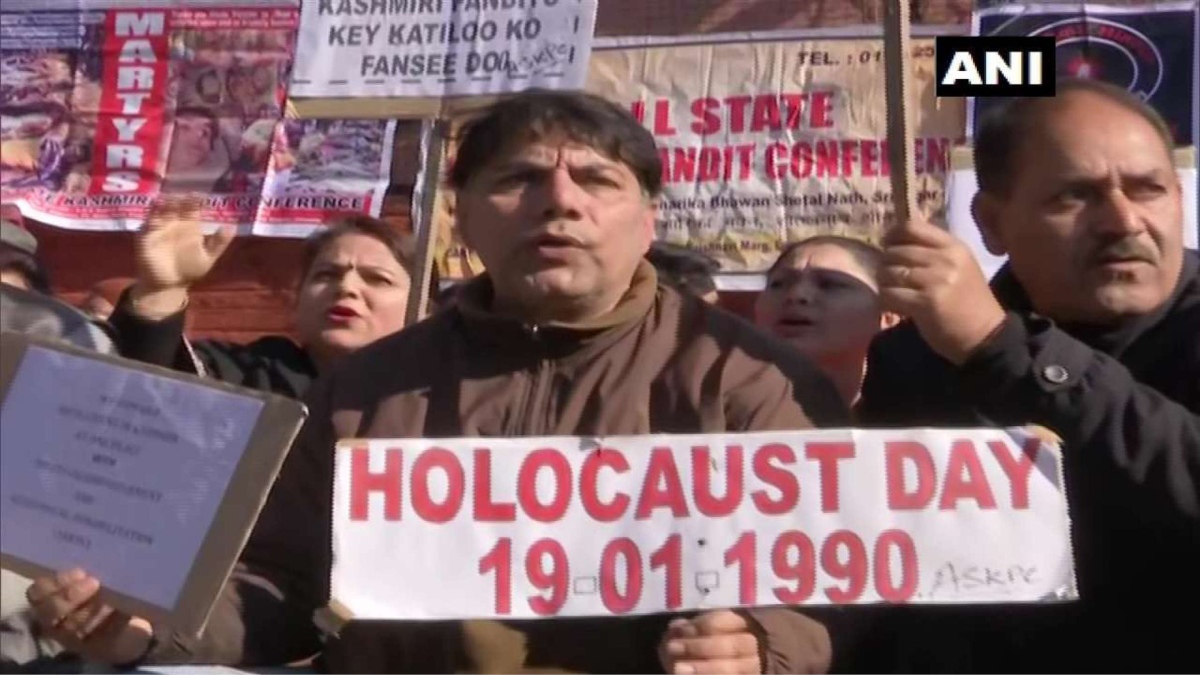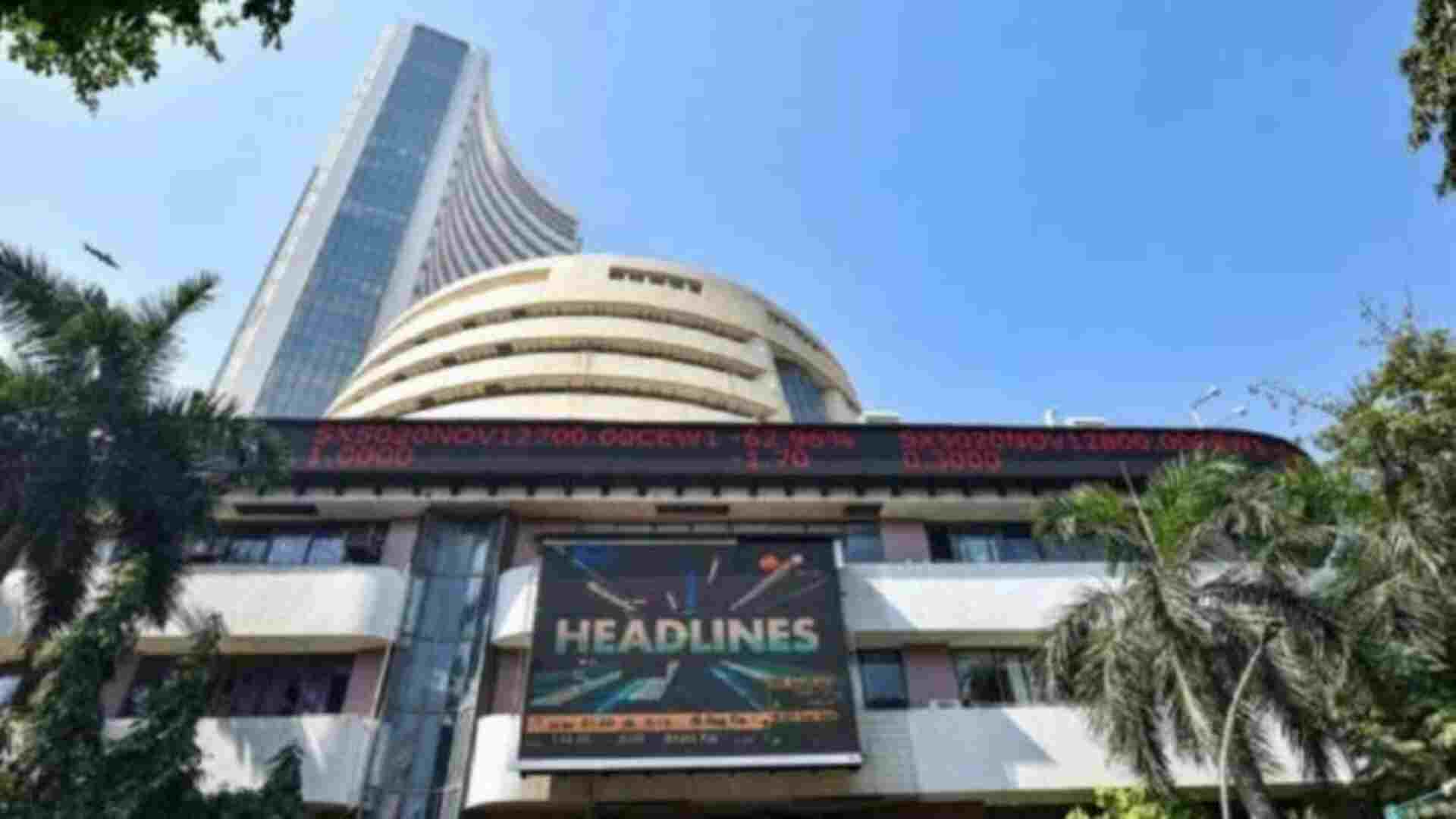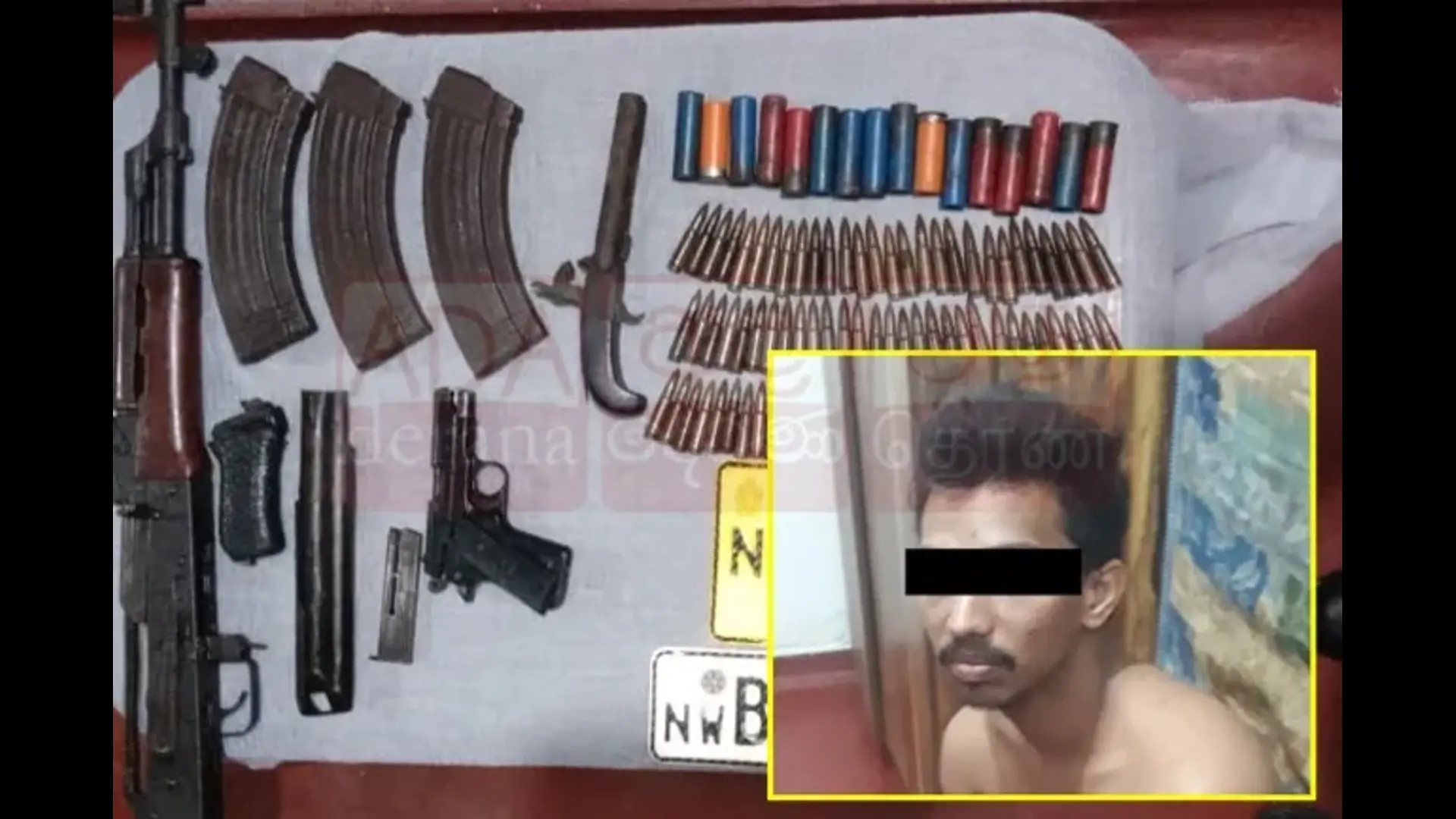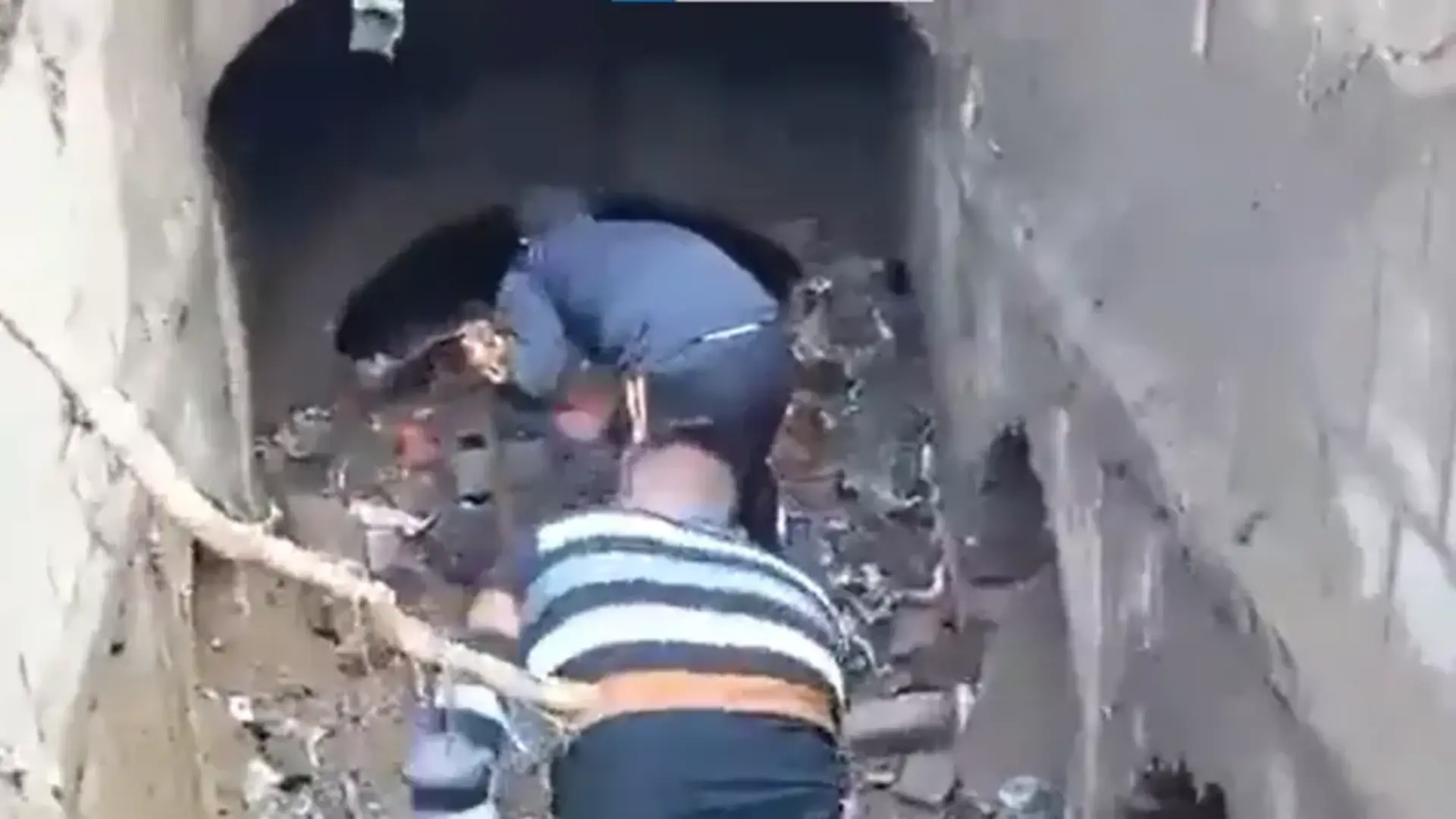That Kashmiri Pandits (KPs) are victims of Islamist jihad at the behest of slogans like ‘Die, Convert or Leave’ is widely known. Yet, as a KP, I am often asked: “Why did we not fight back and remain silent, doing nothing?”, accused of being “weak, cowardly and meek”.
In reality, for 31 years, KPs have been fighting relentlessly against the series of injustices inflicted on us via ‘Panun Kashmir’, a political movement that “besides being a struggle for survival as a cultural entity and an ancient race, is a movement for the political survival of over 700,000 Kashmiri Pandits in their birthland.”
The shock of the mass exodus started unravelling itself when Jammu and Delhi started seeing an influx of distressed Hindus from Kashmir. With nowhere to go, they sought refuge with their relatives or the Gita Bhavan in Jammu. A group of young KPs, Dr Agnishekhar, Dr Ajay Chrungoo and Shailender Aima, each in their twenties and thirties, organised a team of volunteers as the Jammu Kashmir Sahayata Samiti to register names of the families in crisis and seek relief measures from the state government. This nucleus of volunteers later became the present day Panun Kashmir and their efforts in the early days led to the government opening a relief department for the KP refugees.
It is noteworthy that from 1990 to 1999, almost 25,000 KPs died, in refugee camps and in changed environmental conditions, which was roughly 10% of the community living in Jammu those days—an indicator that the genocidal process continued post the forced exodus in 1990.
As displaced Pandits from the valley of Kashmir continued to be uprooted and looted, it became clear that this wasn’t a one-off incident but a planned persecution. The young volunteers supported by the Vidyarthi Parishad, Sanatan Dharma Yuvak Sabha led by Ambarnath Vaishnavi, convened the first bipartisan convention at Mahajan Bhavan in June 1990, which was attended by over 600 delegates and sought, among other key resolutions, the Removal of Article 370 from the Indian Constitution and demanded the return of displaced Kashmiri Pandits to a secure and separate homeland with constitutional guarantees (fourth resolution). The formal curation of Panun Kashmir as an organisation emerged in July 1990, from this fourth resolution to correct the political, human rights and strategic discourse in Kashmir.
The following year, Mohan Kishen Teng led the team and drafted the Margdarshan Resolution that was adopted at a convention on 27-28 December, 1991 in the presence of over 1000 delegates representing the entire KP community. Among the early endorsers of this resolution was senior Indian politician and RSS activist Balraj Madhok. Among a series of demands, the Margdarshan Resolution demanded the establishment of a separate homeland for Kashmiri Hindus in the Kashmir Valley and sought to declare Pakistan as a terrorist state. Since passing the resolution, PK volunteers travelled across the length and breadth of India and reached out to their diaspora, seeking their participation in these shared demands.
One must appreciate that these youngsters actively continued to also shoulder the responsibilities of taking care of their families and protecting them, and rebuilding a life in exile as they made active efforts to fight for the rights of fellow Kashmiri Pandits with the state and Central governments in India, and even the United Nations. In fact, the representation at the UNHRC in 1993 pushed Pakistan into withdrawing their anti-India resolution and censuring India on its human rights violations in Kashmir, in response to India’s efforts to control terrorism and insurgency in Kashmir.
Over the years, in an attempt to keep the exile consciousness alive among the displaced community, key dates have been commemorated as markers and reminders of the injustices inflicted on the KPs, such as 19 January as Forced Exodus Day, 14 September as Martyrdom Day and 28 December as Homeland Day.
In official gazette notifications, KPs were noted as ‘Migrants’ which Panun Kashmir objected to and sought the recognition of KPs as refugees in their own country and for their ‘genocide’ to be recognised. This struggle continues till this day as the community finds itself caught between genocide and its denial.
Survival itself was a daily challenge and the temporary tenements provided to the KPs started wearing off within a few months and admissions to the displaced children were denied in government schools. After much struggle and with support from the Jagriti Mission, classes were conducted by displaced ‘migrant’ teachers, often in the corridors of school buildings after regular school hours ended. ‘Camp schools’ were run to keep children from not missing out on their schooling—yet another passionate demand of PK activists.
Fast forward to the present day, two key measures have been welcomed by the community:
1. Banning of JKLF and Jamat-i-Islami, holding them responsible for the ethnic cleansing of Kashmiri Pandits,
2. Neutering of Article 370 and removing any special privileges for the state of Jammu & Kashmir; reorganising the state into the two union territories of Ladakh and Jammu & Kashmir.
What remains is a formal recognition of the ‘genocide’ of Kashmiri Pandits and the process of reversing the genocide. PK recently proposed the draft Genocide Crime Punishment and Atrocities Prevention Bill to be introduced and adopted in the Indian Parliament so that a mechanism of justice delivery is institutionalised via law. This is yet to be introduced in the Parliament though I understand that the Bill has wide acceptability across party lines.
An important aspect of KP genocide is the measurement of the extent of loss and destruction. PK activists have travelled across Kashmir and undertaken an extensive photo-documentation of the desecration over three years, which has been later displayed at exhibitions in Mumbai, Pune and Delhi. This was needed urgently in absence of any statistical survey as the state government is not interested in mapping the extent of destruction in the absence of the recognition of genocide.
There had been, over the years, forced capturing and ‘distress sale’ of Pandit land and homes. PK campaigned actively against this, demanding legal action, and this led to the Prevention of Distress Sales Act 1997-98 in J&K. Though with this legal provision the government began recognising encroachments, they are yet to accept the genocidal dimensions of this encroachment.
Moreover, the cost of the genocide is yet to be calculated. If one were to note the thousands of insurance claims settled for the burnt houses, the hundreds of temples desecrated, properties looted and plundered, orchards, farms, land and several items from the houses lost, it would perhaps run into millions of dollars. The items of loot continued to be sold in local flea markets in downtown Kashmir years after the forced exodus!
Finally, terrorism by a Pakistan-sponsored insurgency, radicalisation and the Islamist jihadist brainwashing of youngsters converted the Valley into a ditch of death. Young Muslim boys were forcibly sent across the border to Pakistan for ‘training’ in 1988-89. The initiation of the counter insurgency process, led by Kuka Parray and the role of Panun Kashmir activists, especially Capt S.K. Tikoo, are now widely recognised by Kashmiris. Yet, one notes the many times when the same perpetrators of genocidal crimes against the Pandits, the separatists who openly admitted to these massacres, were invited to the negotiation table, while alienating the persecuted Hindus and other minorities of Kashmir!
The role of Panun Kashmir as a political movement and its many contributions and sacrifices ought to be commended. I strongly urge the Government of India to take on board the PK recommendations if there is any desire for India to retain its civilisational identity in Kashmir, and in hundreds of other mini-Kashmirs in the making, all over India.
The writer is an Indian British Kashmiri Pandit human rights campaigner based in London. The views expressed are personal.






